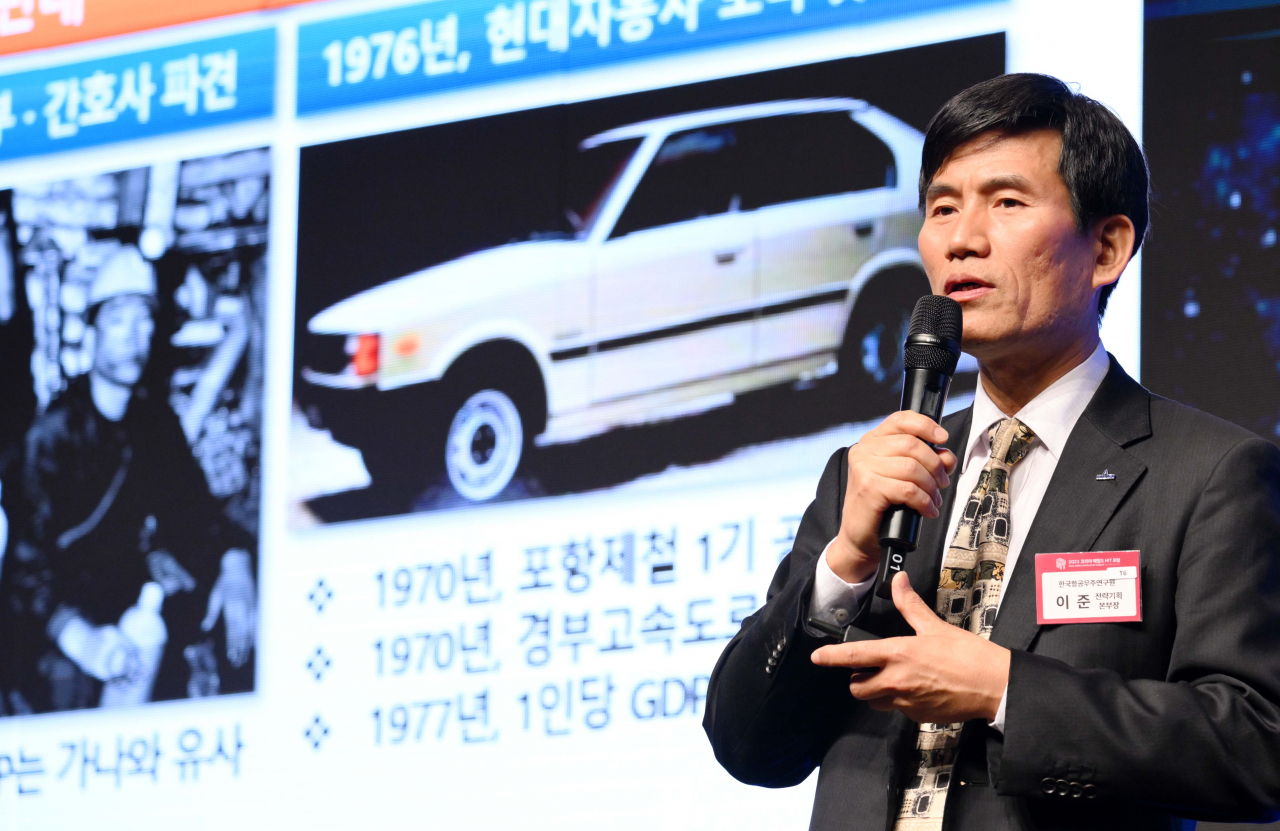 |
Lee Joon, executive director of the Korea Aerospace Research Institute's strategy and planning directorate(Lee Sang-sub/The Korea Herald) |
The space economy is expanding and becoming increasingly global, and South Korea is leaping forward as a space powerhouse, a high-ranking official at the Korea Aerospace Research Institute said at the 2023 Korea Herald Humanity In Tech, or HIT Forum, held at The Shilla Seoul on Wednesday.
With innovative technologies and massive investment, both governments and companies around the globe have secured space assets because they can directly impact the state’s survival in terms of security, according to Lee Joon, executive director of KARI’s strategy and planning directorate.
For the security of the state’s survival, there is a growing trend for precise reconnaissance and surveillance assets using drones and high-precision low-orbit satellites.
The strengthening of effective military operational communication capabilities through the defense satellite communications system has also been on the rise.
“Beyond research and development tasks, outstanding space technology can determine the state’s missions at a holistic level, such as security, future growth engines and diplomatic relations. It can also become a key means of dynamics in the trade sector,” Lee said. “There is an urgent need for securing sovereignty over space technology.”
Yet Korea was once about 40 years behind other advanced space nations in technology. It kicked off space launch vehicle development with the Korea Sounding Rocket series in 1990, but Korean lunar exploration probes advanced the country’s space developments, realizing satellite technology-based space exploration.
“Korea now looks to realizing a global space economy powerhouse by 2045,” Lee said.
In July last year, President Yoon Suk Yeol declared the country’s opening to the new era of the space economy, vowing systematic support for the domestic aerospace industry to develop a lunar lander by 2031. About four months later, he once again introduced the country’s space economy road map with goals of landing on the moon and Mars in 2032 and 2045, respectively.
While the government plans to double its annual space investment to 1.5 trillion won ($1.17 billion) by 2027 to expand the country’s space research and development, its long-term space plan includes five goals: expanding space exploration, completing space transport, creating space industry, establishing space security and advancing space research capability.
To fulfill the government’s space goals, the state-run aeronautics and space agency is running a task force to work on a list of required technologies, according to Lee. For those in charge to make faster decisions in approving space research and development projects is also crucial, he added.
"Based on the space economy, the government needs to build a solid industrial ecosystem and national governance, while securing talented professionals and a global leadership," the KARI executive director said.
Additionally, cutting-edge space technologies in areas such as infrastructure, launch vehicles and satellites are other important priorities. He also highlighted that the major strategies and tasks that Korea has to pursue are not only limited to engineering.
"There are a lot more work to be done by our next generation. A strong space economy requires talent of various majors. ... Above all, we ask for many people's continued interest in space."







![[Weekender] Korea's traditional sauce culture gains global recognition](http://res.heraldm.com/phpwas/restmb_idxmake.php?idx=644&simg=/content/image/2024/11/21/20241121050153_0.jpg)